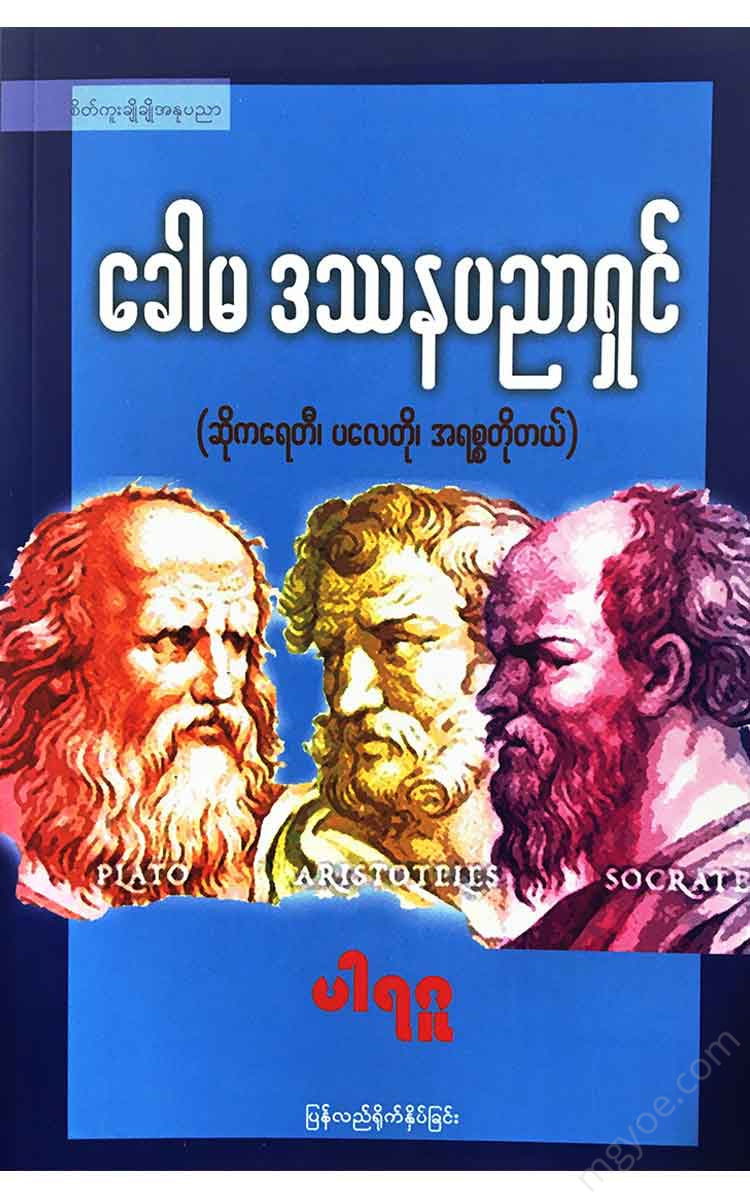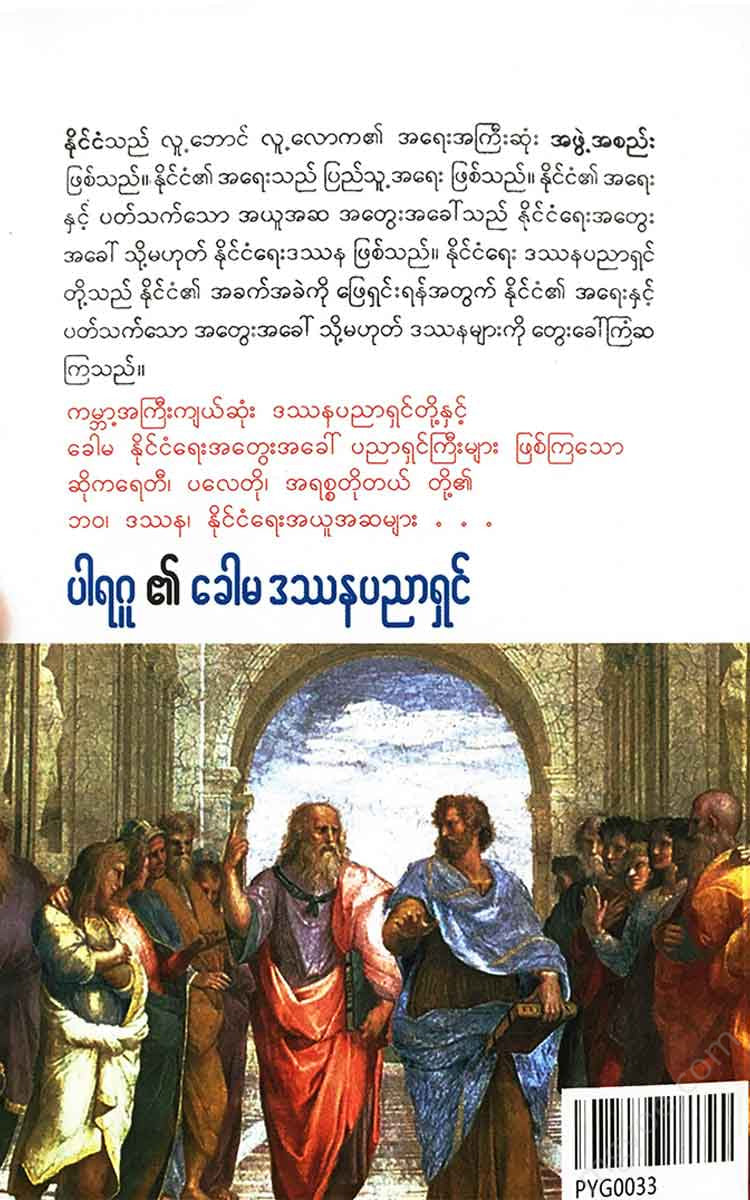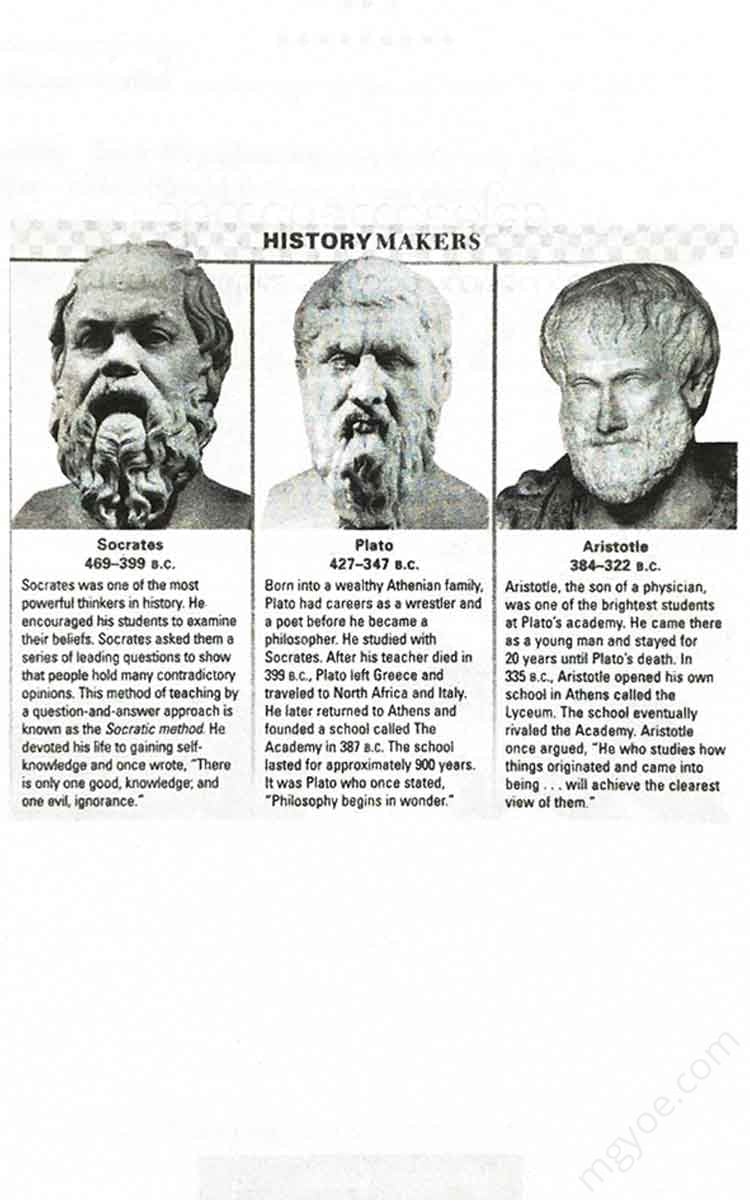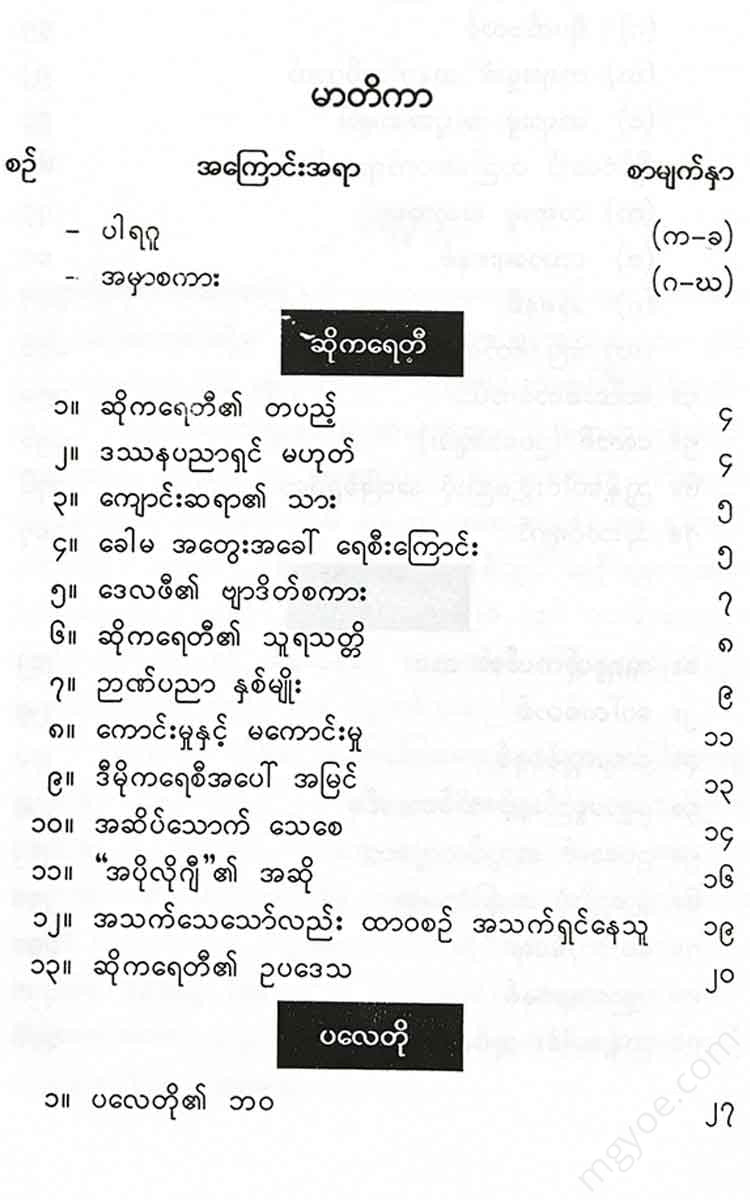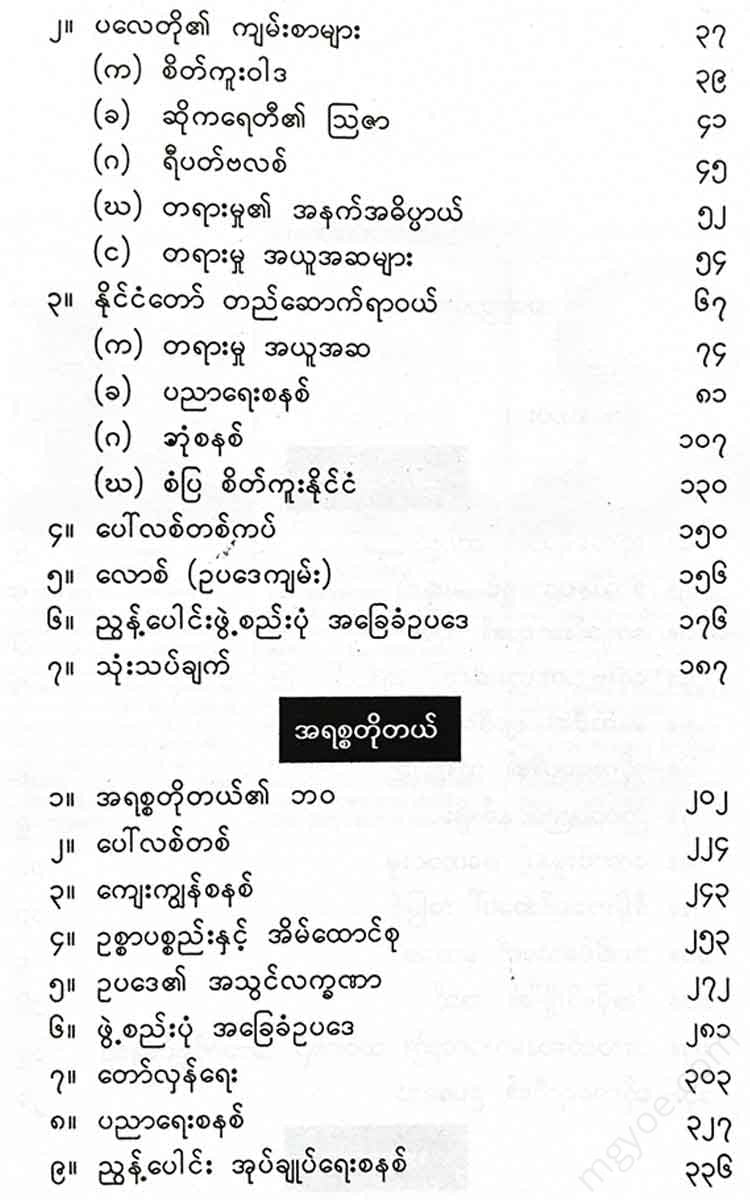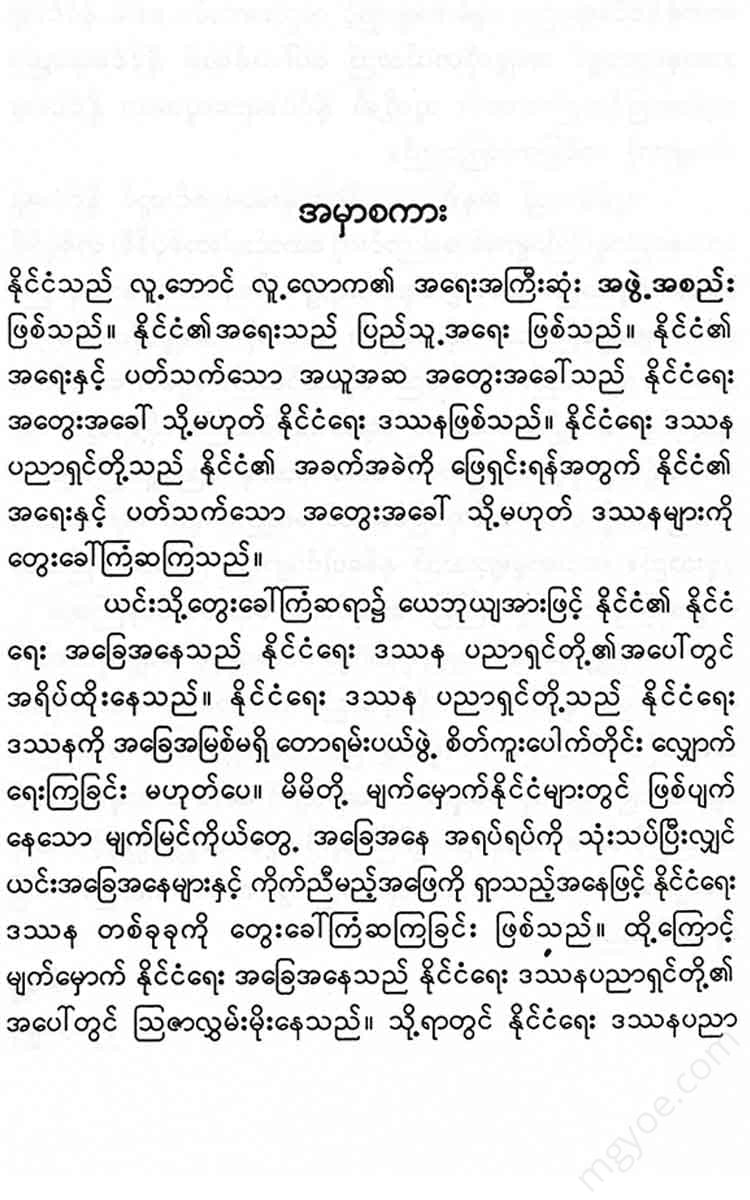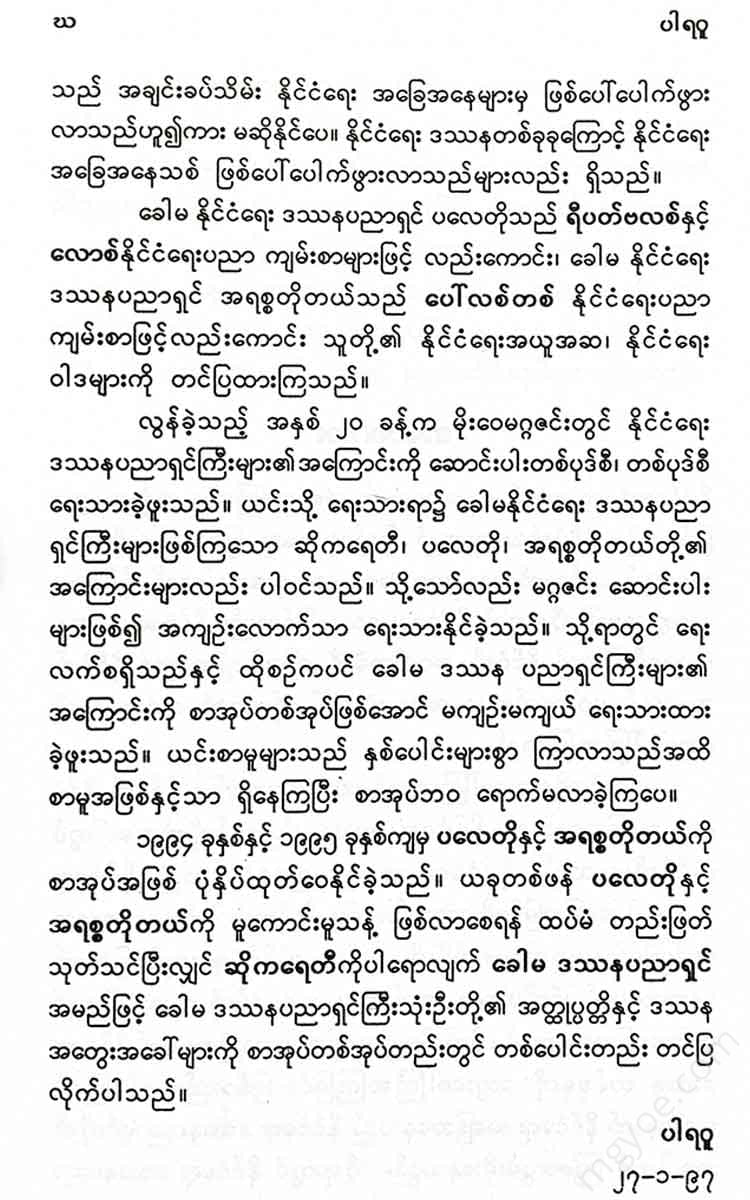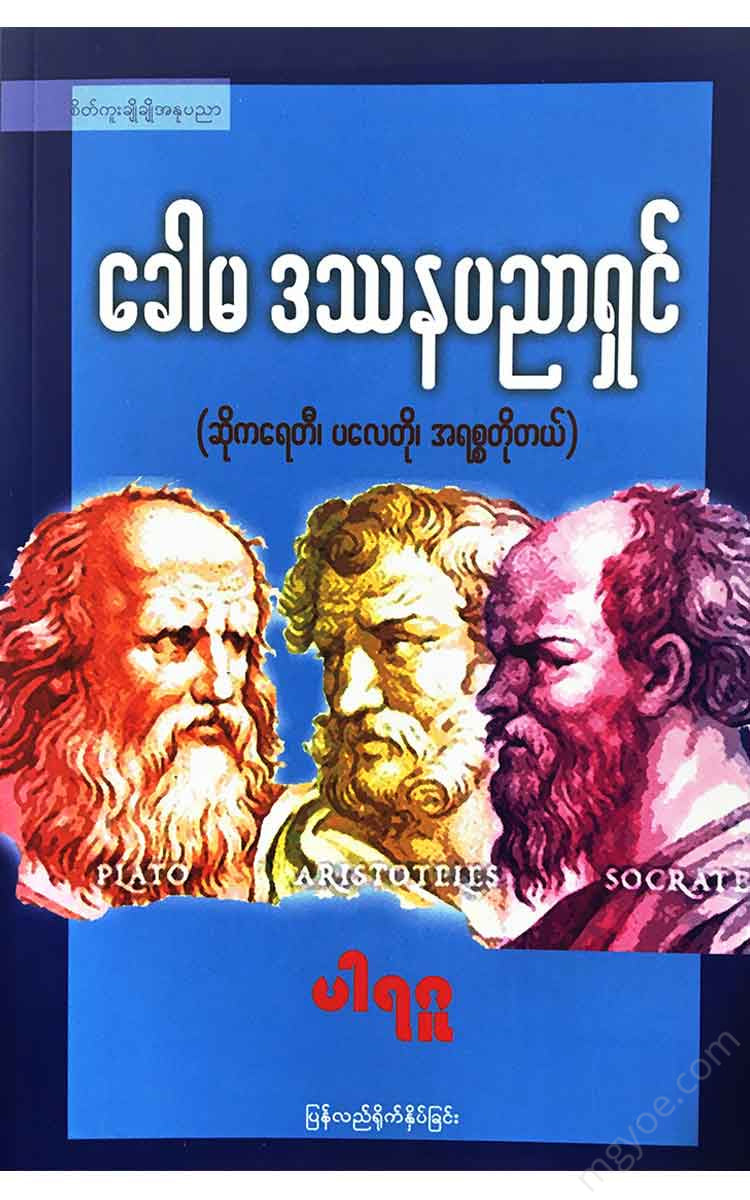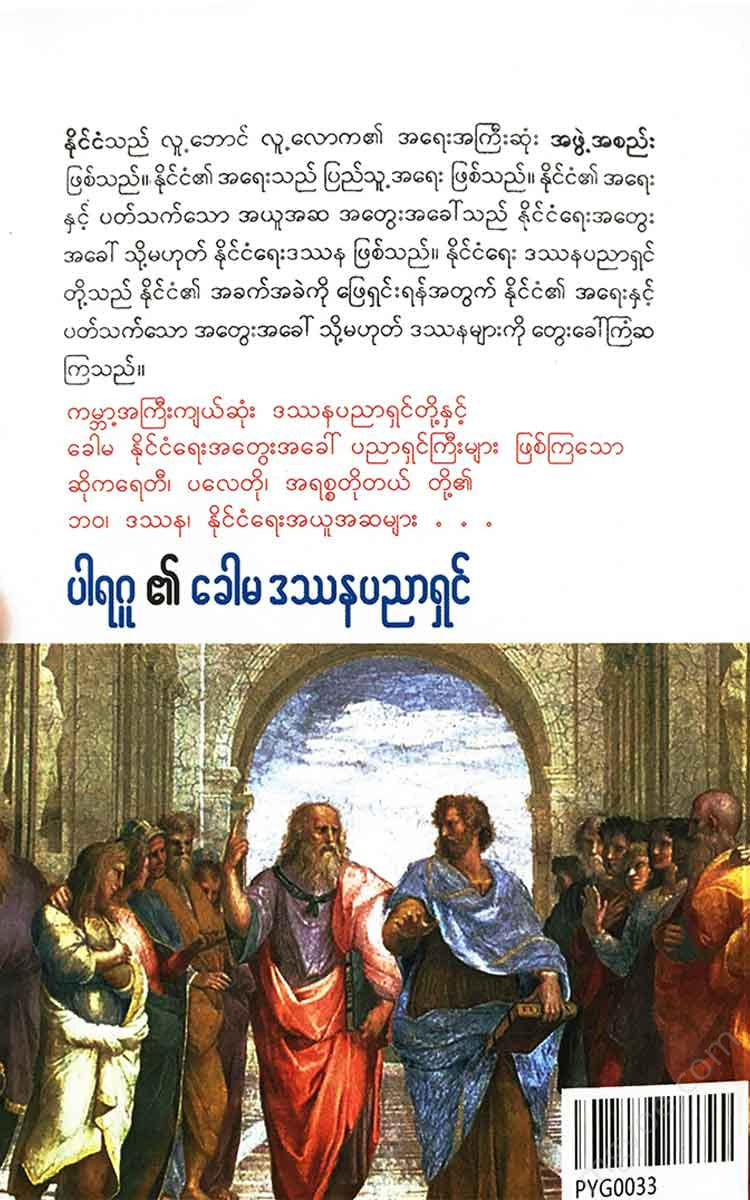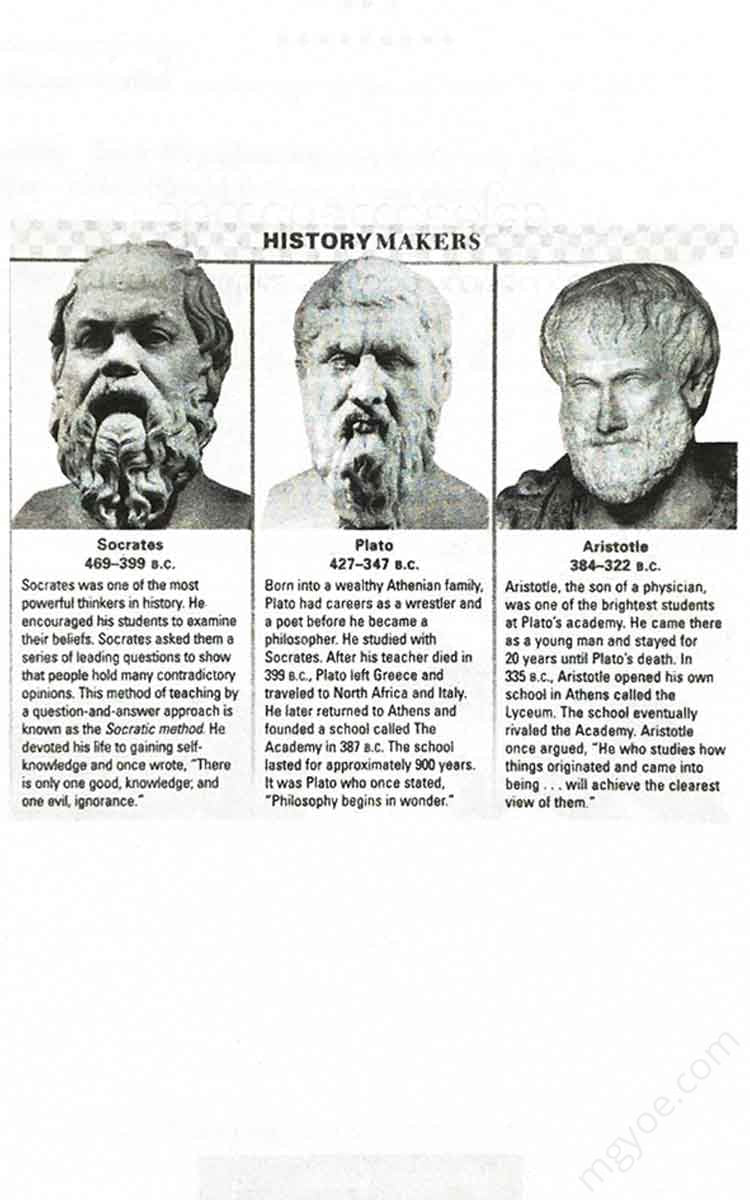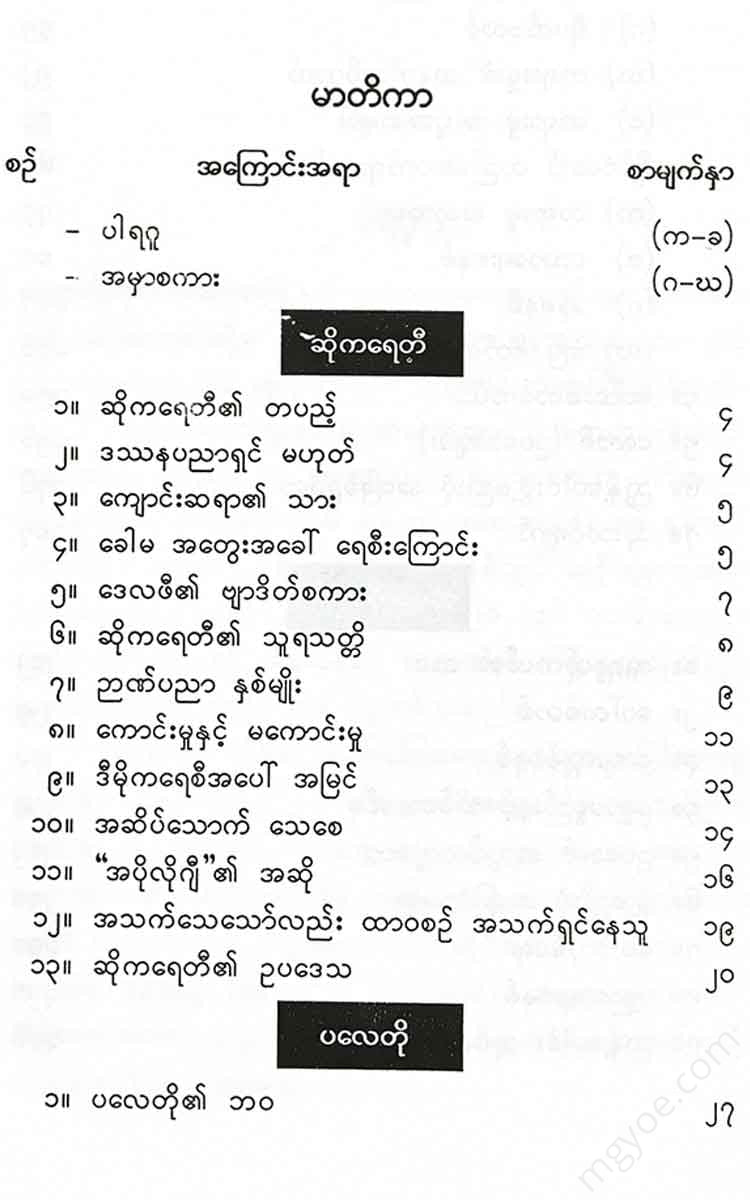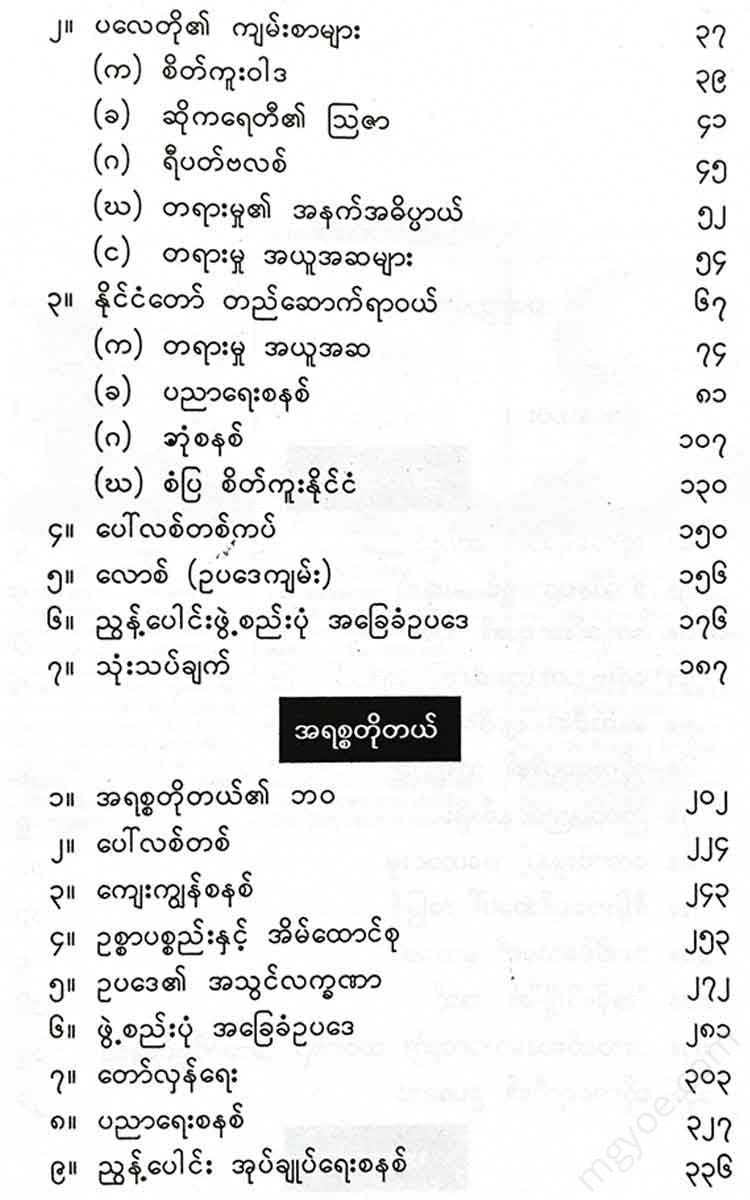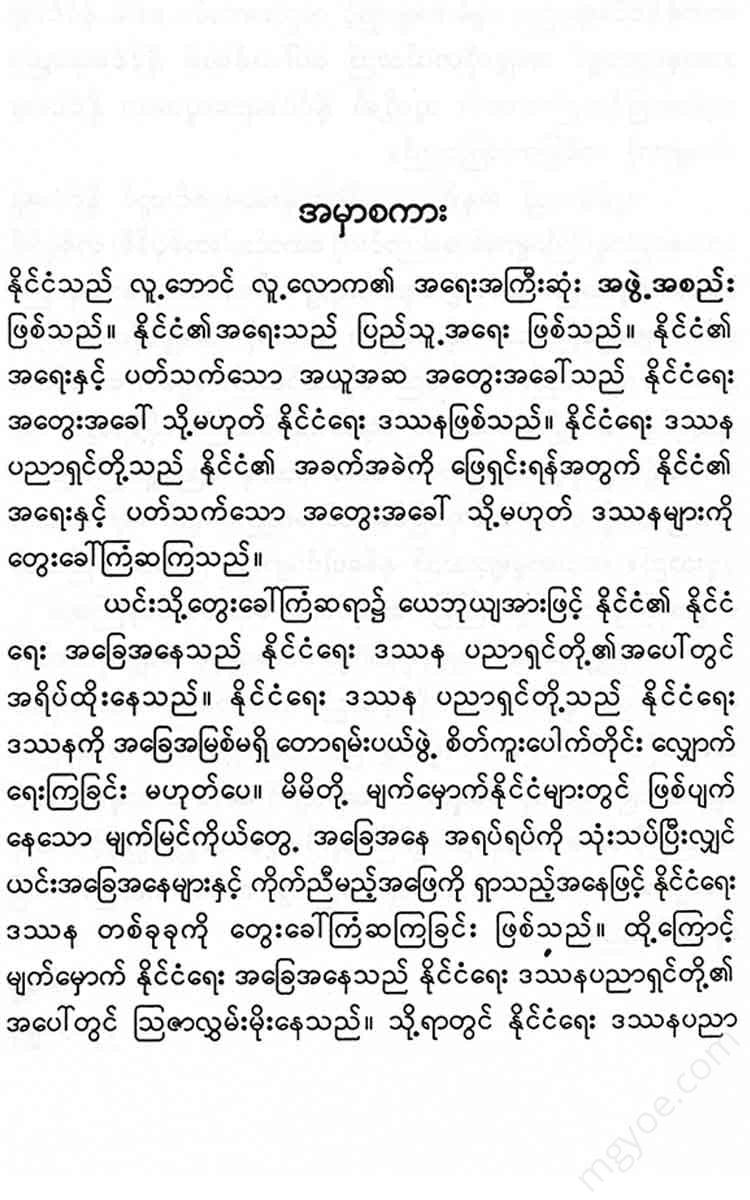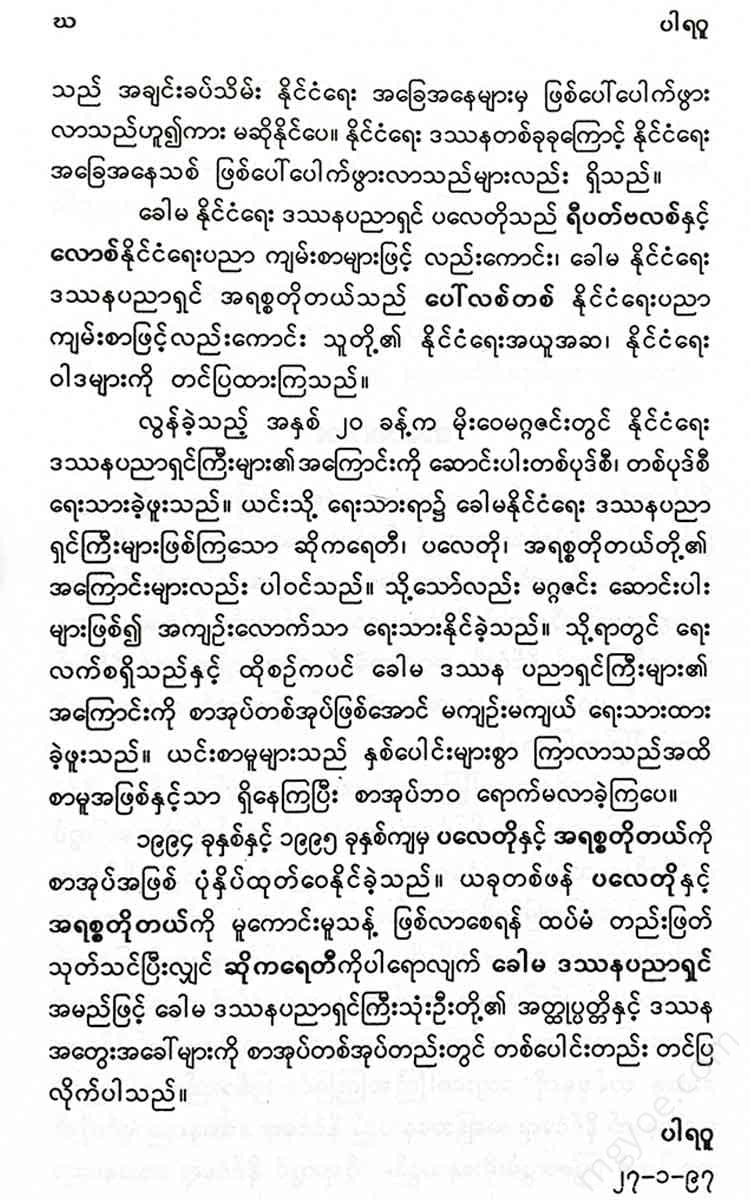စိတ်ကူးချိုချိုစာပေ
Expert - a philosopher of the world
Expert - a philosopher of the world
Couldn't load pickup availability
Socrates
Although we know a fair amount about some famous historical figures, the evidence for them is scant. Socrates (470-399 BC) is one such figure. Bertrand Russell writes:
“It is certain that we know a little about some people. It is certain that we know a lot about others. But whether we know a little about Socrates or a lot is uncertain.”
The main reason for this is that Plato, Xenophanes, and Aristophanes wrote a lot about Socrates. However, their writings about Socrates are not consistent with each other.
1. Socrates
2. A History of Western Philosophy
Student of Socrates
Plato was a student of Socrates. He also had great respect for his teacher. In the dialogues of Apollo, Crito, Phaedo *. Plato wrote a good account of Socrates in the Symposium.
But one of Plato's great faults is that he also asked Socrates to tell him all his own ideas. Aristophanes wrote a humorous account of Socrates in the Claudius. The accounts in Xenophanes' Memorabilia, Symposium, and Apology differ from Plato's other accounts.
Not a philosopher
Some doubt whether Xenophon, who was not a philosopher, could have accurately described Socrates' ideas. It is said that none of the three accounts is entirely correct. Based on these accounts, we can learn a little about Socrates' life.
1. Apology
2. Crito
3. Phaedo
4. Symposium
5. Clouds
6. Memorabilia
School teacher's son
Socrates was born in Athens, about 470 BC, 10 years after the Battle of Salamis, into the family of a stonemason. His mother, Phaena, worked as a midwife. Socrates initially worked for his father for some time. However, later he spent his entire life contemplating truth and pondering philosophical concepts.
Socrates said that he would give birth to new ideas, just like his mother's work. His youth was spent in the golden age of Pericles, the golden age, and the later years of his life were spent during the Peloponnesian Wars.
Until 435 BC, Socrates was passionate about studying and teaching natural science, which was concerned with the nature and manner in which natural phenomena occurred. However, he was not satisfied with this physical science. After 435 BC, he focused on thinking about the underlying problems that caused natural phenomena. After abandoning natural science, he studied philosophy and metaphysics, also known as metaphysics.
The current of thought
This change in Socrates' path marked the beginning of Greek philosophy.
1. Phainrete
It was a unique and important event in history. The current of Greek thought changed its course. It is said that the reason for this change in Socrates' thinking was the "Delphi Oracle."
Chaerephon, a contemporary of Socrates, a great admirer of Socrates in Athens, asked the oracle at Delphi whether there was anyone wiser than Socrates. The oracle replied that there was no one wiser than Socrates. When Socrates was told this oracle, Socrates replied that the only thing he understood was that he understood nothing.
1. Delphic Oracle
2. Chairphone
Socrates went to the supposed wise men of Athens and asked them questions. He learned from Zeno the “method of questioning, argumentation, and debate.” According to this system, questions were asked in a prescribed manner to gain knowledge, attempting to get to the root of all problems and to find solutions to them.
The Oracle of Delphi
After hearing the oracle at Delphi, Socrates realized that the gods had entrusted him with the task of spreading wisdom. After making it impossible for the wise to answer, Socrates forced them to admit their ignorance. It is no wonder that the wise were angry with him for this.
After many conversations with many people, Socrates decided that the Delphic oracle was right. He was wiser than other people. But this was not because he knew more than other people. It was because he knew that he was not wise. Other people, although they were not wise, thought of themselves as great scholars. This was how Socrates understood.
1. Dialectic
Socrates's biography
As an Athenian citizen, Socrates fulfilled all his obligations. Philosophers generally believe that he had no connection with war. However, Socrates fought as an armed soldier on the side of Athens in Thrace. In 424 BC, Socrates was praised for his bravery and courage at the Battle of Delian. At the age of 65, Socrates became a member of the Athenian senate.
In 405 BC, at the Battle of Argyrus, the naval commanders who failed to successfully prevent their sailors from drowning were tried and sentenced to death. Socrates alone strongly opposed the punishment, arguing that it was against a constitutional provision.
In 404 BC, the 30 tribunes of Athens ordered Socrates to arrest a citizen. Socrates considered this order unjust and refused to comply. Socrates fulfilled his civic duties but did not violate or violate the dignity of the civic code. In this regard, he was free to do as he pleased.
1. Delirium
2. Arginusae
His great characteristic is his ability to think freely and boldly. That is why he drinks the last poison.
Two kinds of wisdom
Socrates' greatest idea was self-knowledge. His basic slogan was the phrase inscribed on the oracle at Delphi, "Know thyself." Before Socrates, the Sophists emphasized skepticism,
“Good and evil depend on the circumstances. They are determined for each individual by their own personal desires and the circumstances.” These ideas are what lead to moral anarchy.
Socrates opposed the Sophists and believed in a "twofold philosophy of knowledge." The Sophists' view was limited to the external world known only through the senses. They considered the external world, known only through the senses, to be the ultimate and ultimate.
Socrates believed in two kinds of knowledge. These two kinds of knowledge are the knowledge of the external world, which is uncertain and perceived by the senses, and the knowledge of the permanent, which is related to all. For example, we see many people in the world with different appearances. There is no certainty or precision in them. They are impermanent. However, the knowledge of human nature, human life, which points to the common characteristics of all people behind them, is related to all. It is eternal.
True knowledge is simply the knowledge of the interconnected principles of all things. This knowledge is
1. The Doctrine of Two Knowledges
2. Universals
It is the duty of man to acquire knowledge. The greatest weapon for acquiring knowledge is to understand the true meaning of words. We use words like justice. But we do not know or understand the true meaning of these words. Socrates asked his friends the meaning of such words. He criticized the interpretations that his friends gave. In this way, he pointed out the true meaning of these words. For example, the introduction to Plato’s Republic begins with a consideration of the characteristics of justice.
Good and evil
Another major idea of Socrates is the distinction between knowledge and goodness. Socrates said that knowledge is good and ignorance or ignorance is evil. People do evil only because they do not know. If people were full of knowledge, they would not do evil. A person who knows that speaking correctly is good will always speak correctly. However, in the real world, this idea does not seem to be accurate. People speak correctly
1. Justice
2. Virtue is knowledge and ignorance is vice.
